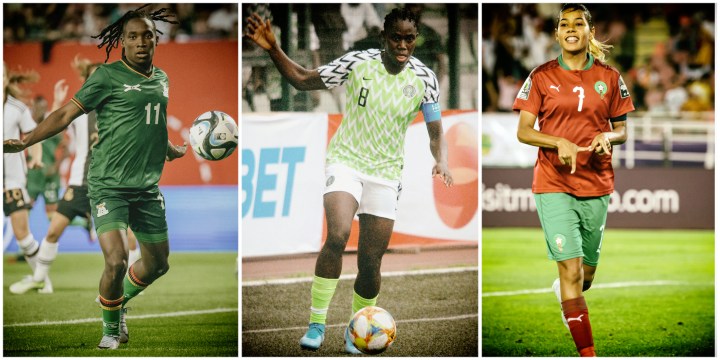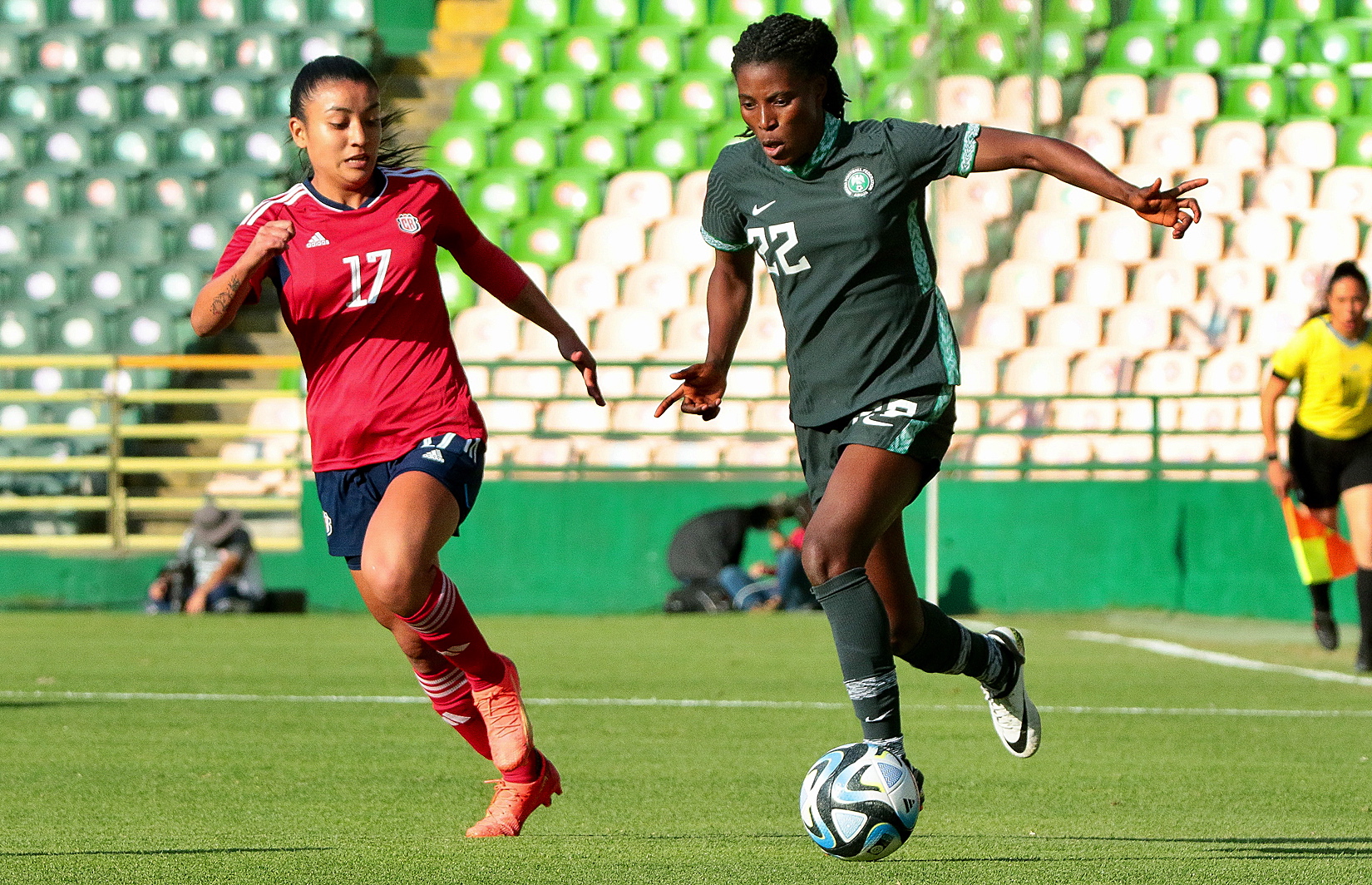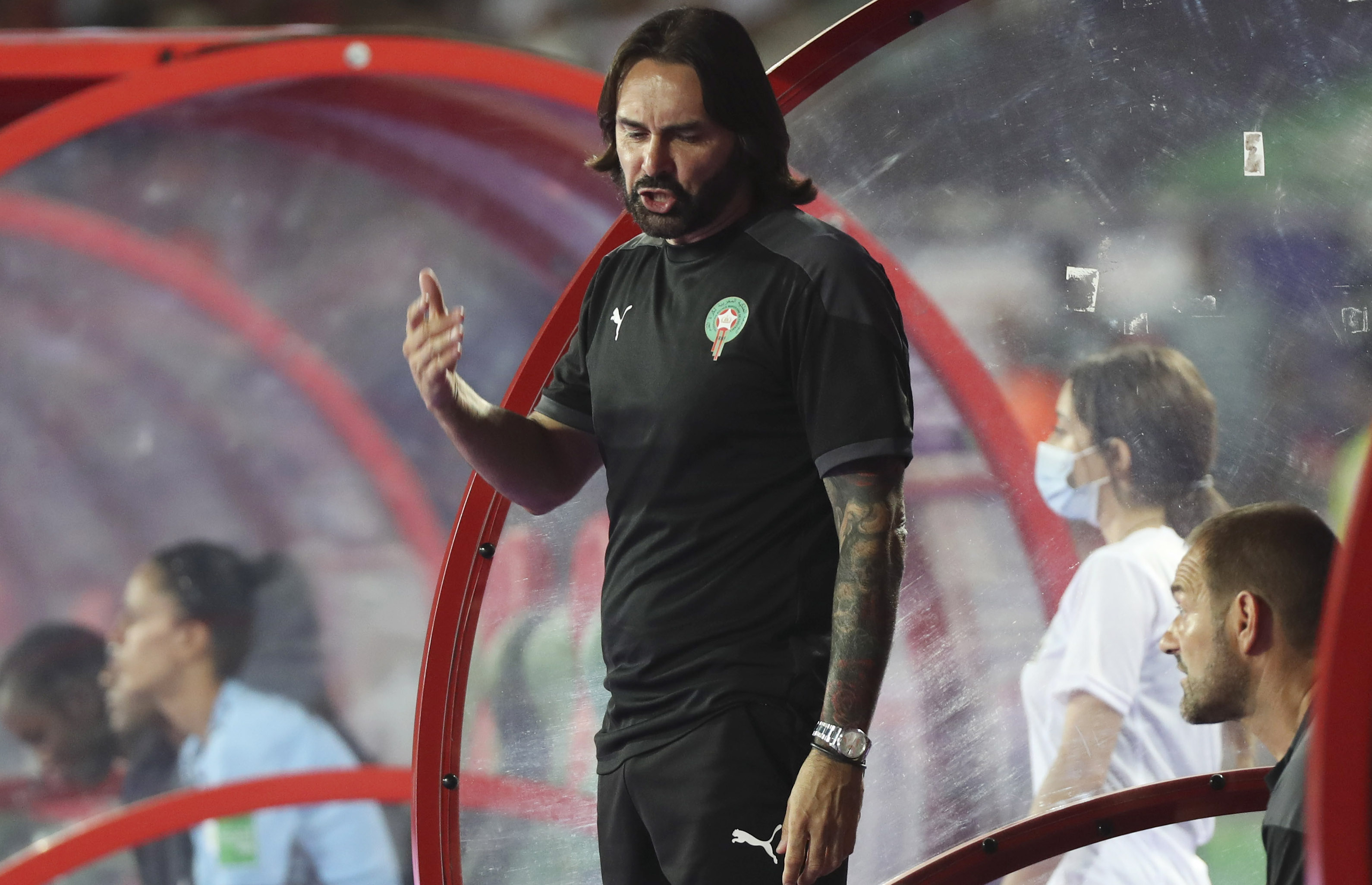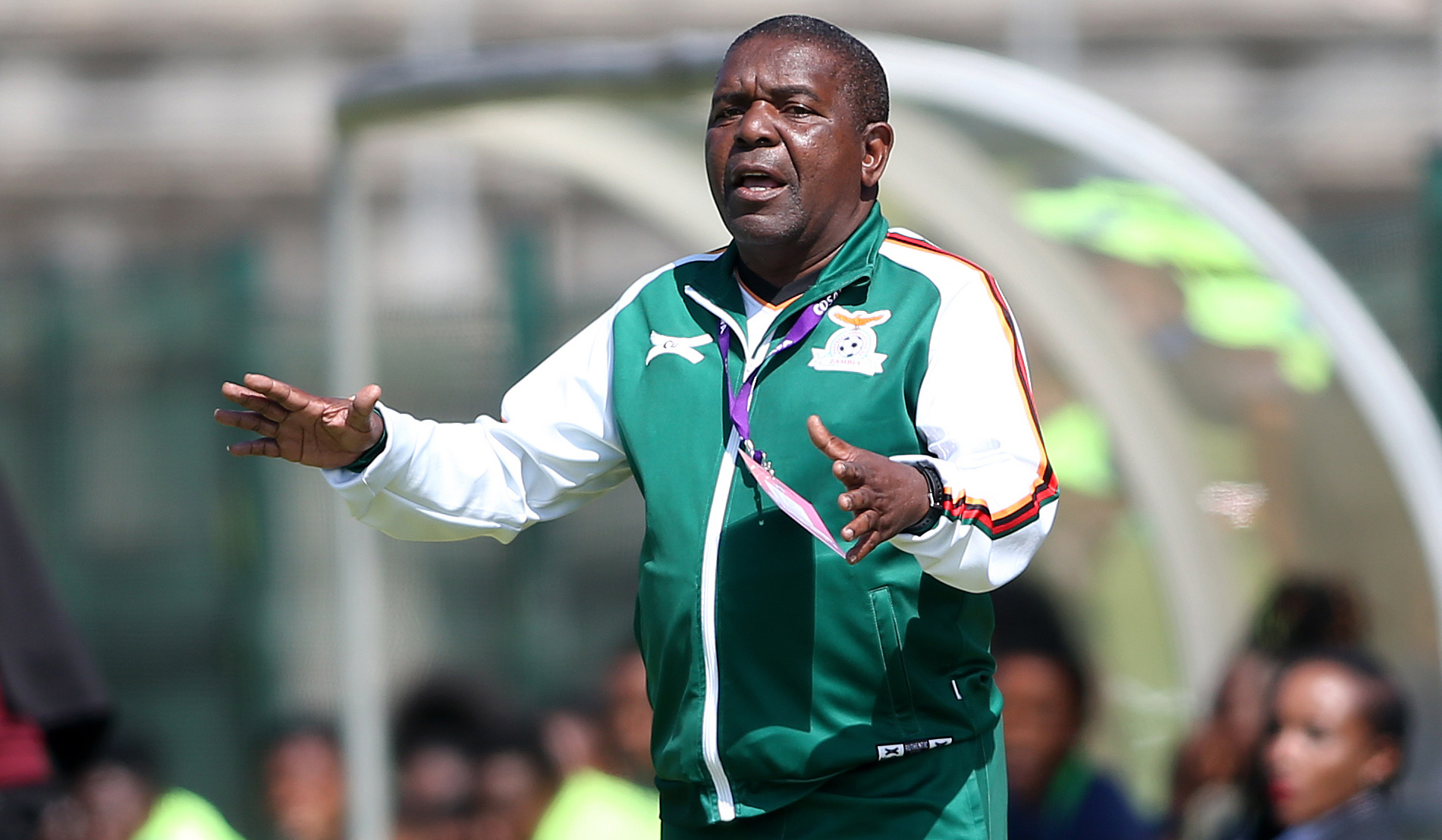SOCCER
Women’s World Cup preview — a look at Africa’s other three contenders

South Africa, Nigeria, Morocco and Zambia - All four African nations head into the Fifa Women’s World Cup as underdogs in their respective groups. Will anyone be able to spring a surprise?
Nigeria team guide
Overview
This tournament finds the Nigeria team in an unusually vulnerable state. Having lost the Women’s Africa Cup of Nations (Wafcon), a title they had previously monopolised for decades, the Super Falcons will arrive in Australia without their trademark aura.
Of course, 2022 was not the first time Nigeria have failed to win Wafcon. Twice they had been usurped by Equatorial Guinea, but on both those occasions it felt as if it was partly down to their own complacency. This time there is a real sense that the rest of Africa is catching up.
At the continental showpiece, the Super Falcons lost to both South Africa and hosts Morocco, the two teams contesting the final with the latter winning. They then lost to Zambia in the third-place playoff.
Considering that backdrop, it seems entirely possible that the nine-time African champions will not be able to equal their achievement from the last World Cup, in 2019. Then they reached the last 16. Their best-ever performance at the tournament was back in 1999, when they got to the quarterfinals.
They are faced with a difficult group featuring co-host Australia and reigning Olympic champions Canada. If they are to progress, they will need to go into their final group match against Ireland with something already on the board.
There is, however, some solace to be found in the fact that the coach, Randy Waldrum, has a squad brimming with talent, especially in the attacking areas.
Barcelona’s Asisat Oshoala is at the peak of her powers. She has just won the Champions League and she has a great support cast, including Atlético Madrid’s Rasheedat Ajibade and Saint-Étienne’s Esther Okoronkwo.
There is also more depth in midfield, an area where Nigeria has struggled for options in the past. “I think the current Super Falcons squad is loaded with many talented players,” Waldrum said. “There are a lot of players who have much to offer in the team and I am reasonably excited and hopeful.”

Adenike Imuran (right) of Nigeria in action with Yerlinge Ovares (left) of Costa Rica during a match for the Women’s Revelations Cup at Leon stadium in Guanajuato, Mexico, 21 February 2023. (Photo: EPA / Luis Ramirez)
The coach
Waldrum is a coach who splits opinion. Apart from the fact that his CV seemed rather weak when he was appointed, and the fact that he essentially works part-time, he also failed to win the Women’s Africa Cup of Nations last year, something that has been taken for granted in the past.
In defence of the 66-year-old, he is facing unprecedented challenges from the other African teams, as women’s football on the continent is growing at a rapid pace.
His job has not been made easier by the Nigeria Football Federation still owing some salaries to the players. Nevertheless, the jury is still out on the former Trinidad and Tobago coach. Performances have slowly begun to improve but a poor showing at the World Cup will leave Waldrum with no place to hide.
Standing of women’s soccer in Nigeria
Despite bringing tremendous success to Nigeria, women’s soccer receives the short end of the stick from a financial perspective.
It is well followed — especially during major international tournaments — but its growth remains hindered by a number of factors. Societal stigmas and poor administration are the most prominent. The domestic league often fails to kick off on schedule, clubs are inadequately funded and there is a lack of infrastructure and expertise.
Morocco team guide
Overview
Morocco’s maiden participation in the World Cup is an achievement in itself. Hosting the 2022 Wafcon was a huge boost to promoting the women’s game in the country. The side were losing finalists, with a team largely composed of players from local giants Asfar, and some very talented individuals from further afield.
The draw has put Morocco in a challenging group with Germany, South Korea and Colombia. The aim is to reach the knockout stages, despite it being an extremely difficult mission.
As with the men’s side, the team is a melting pot where four or even five languages are spoken, but the sole common goal is not just to succeed on the pitch, but to also advocate the women’s game and serve as trailblazers for the generations to come. It seems like a genuine aim in a country where soccer has long been the “game of men”.
A shift in mentality came in 2022, with the Moulay Abdellah Stadium in Rabat a full house for every Morocco game throughout Wafcon. That fever went on when Asfar hosted and won the second edition of the Caf Women’s Champions League.
Ghizlane Chebbak is the face of Moroccan women’s football. Her late father Larbi Chebbak was a Moroccan international and was part of the team that won the sole Africa Cup of Nations title for the Atlas Lions in 1976.
He was also Ghizlane’s biggest supporter when she decided to play football. Chebbak is captain of local giants Asfar and is an icon in the country.
Whenever she has the time, she speaks to young girls, encouraging them to follow their dream and to put the work in. “Moroccan people love watching football and they love supporting anyone who represents the country,” she told Fifa.com.
The lack of experience at the highest level could be the main difficulty facing the Moroccans. The opening game against Germany is daunting, but anything can happen and even a close defeat would give the team a real boost heading into their ties with South Korea and Colombia.

Morocco coach Reynald Pedros during the 2022 Women’s Africa Cup of Nations final between Morocco and South Africa at Prince Moulay Abdellah Stadium, Rabat, Morocco on 23 July 2022 (Photo: Gavin Barker / BackpagePix)
The coach
When the Moroccan Football Federation (FRMF) contacted Reynald Pedros during the Covid-19 pandemic, they wanted a big name to help the team make the big step to the top level.
Pedros proved to be just the person for the role. The former France international is well-respected, having won two Ligue 1 titles, a French Cup and two Women’s Champions League titles with Lyon.
The tactician is conscious of the importance of the women’s game for Morocco and has brought in a number of young and talented players from Europe. Leading the team at the World Cup might be one of his biggest challenges, but whatever the outcome, he seems set to be linked with Morocco for a long time to come.
Standing of women’s soccer in Morocco
The FRMF has been investing in the promotion of women’s football since 2009. However, the pace of the development took a huge leap in recent years, with the creation of a professional league. In order to protect the players, FRMF pays their monthly wages. This has encouraged a lot of families, who were concerned about the uncertainty of a footballing career for their daughters.
In 2018, Morocco hosted the Symposium on African Women’s Football. This led to a number of resolutions regarding the development of the game. FRMF also created a women’s football academy six years ago. Additionally, Morocco is the only country in the world with a two-tier championship that is entirely professional.
Zambia team guide
Overview
The Zambia women’s side is one of Africa’s fastest-rising teams, having been the only African women’s soccer representative at the 2020 Tokyo Olympics. The Copper Queens also reached the 2022 Wafcon semifinals, which secured their qualification for a Women’s World Cup debut in 2023.
Women’s soccer is still developing in Zambia. However, the national team has achieved significant success despite the challenges. The majority of the players have been employed full-time by the air force and army to play soccer for the two most prominent women’s military clubs in Zambia: Red Arrows and Green Buffaloes.
Despite having a young squad (with some of the local players earning less than R1,000 a month at their respective clubs), Zambia defeated top-ranked teams such as Senegal, Tunisia and Nigeria at Wafcon. Their only defeat was by eventual tournament winners South Africa in the last four.
During the tournament, Zambia were missing their top strikers, Barbra Banda and Racheal Kundananji. They were disqualified from competing due to high testosterone levels. However, they have been cleared to play at the World Cup.
Zambia has struggled this year, including a 10-2 aggregate loss to South Korea across back-to-back friendlies in April. Banda and Kundananji are still trying to adjust to playing as a pair since their return to the squad.
Kundananji finished the 2022/2023 season as the second-highest goalscorer in the Spanish league, with 25 goals for Madrid CFF. Banda scored nine goals in six games for Shanghai Shengli in the Chinese Super League.
They are unlikely to make it out of a group containing Japan, Spain and Costa Rica. But the experience gained will be priceless.

Zambia coach Bruce Mwape during the 2022 Hollywoodbets Cosafa Women’s Championship semifinal match between Zambia and Tanzania held at the Isaac Wolfson Stadium in Gqeberha, South Africa, on 9 September 2022. (Photo: Shaun Roy / BackpagePix)
The coach
Bruce Mwape took over as head coach in 2018 but his tenure has been rocked by allegations of sexual misconduct with players.
According to the president of the Football Association of Zambia (FAZ) Andrew Kamanga, the investigation was referred to the police and Fifa to ensure that it is not accused of “taking sides”.
There has not been a verdict yet. A holder of the Caf A licence, the second highest level of coaching licence attainable on the continent, Mwape has led the Zambia women’s team to Wafcon qualification twice. And now the World Cup.
Standing of women’s soccer in Zambia
FAZ launched the Women’s Super Division in 2021, resulting in an increase in the number of women’s clubs. Despite the fact that the league is solely sponsored by FAZ and is not broadcast on television, it has produced several players who are now playing professional soccer outside of Zambia. DM


















 Become an Insider
Become an Insider
Comments - Please login in order to comment.